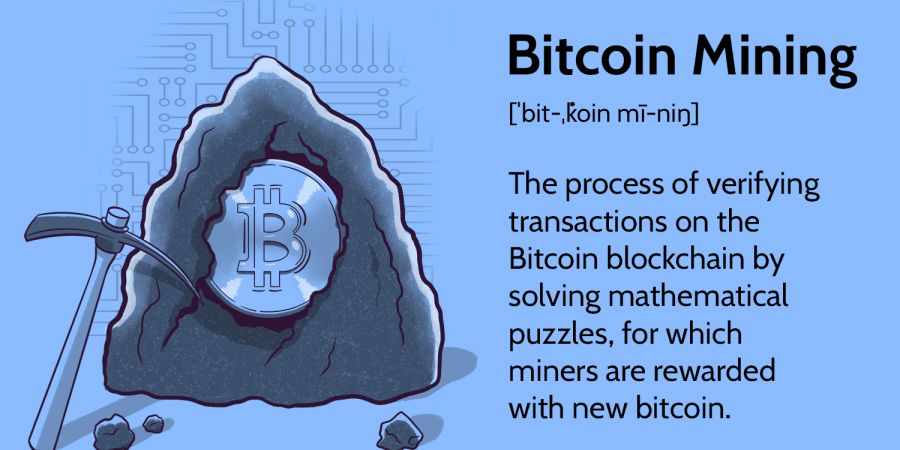

Intel Rejects the Bitcoin Mining Industry
Another day, another firm that the industry titan in semiconductors Intel (NASDAQ: INTC) has chosen to leave. As Intel seeks to cut costs while regaining its dominance in its core PC and server CPU markets, breaking into the GPU market, and building a world-class foundry business, non-core companies are being sidelined.
Blockscale application-specific integrated circuits (ASICs) for bitcoin mining are the latest casualty of Intel's slimming down strategy. Although GPUs can be used to mine bitcoin, an application-specific integrated circuit like Blockscale is created specifically for the job at hand. When mining bitcoin, power efficiency is everything. In the third quarter of 2022, as Intel started shipping Blockscale, it acquired Argo.
strange timing
Anytime between the end of 2020 and the beginning of 2022 would have been the ideal time to introduce a bitcoin mining chip. One bitcoin experienced an incredible rally during the cryptocurrency bubble of the epidemic era, reaching a price of $60,000. It became quite profitable to mine bitcoins, and Intel's CPUs would have been in high demand.
The commercial introduction of Blockscale by Intel in late 2022 was the incorrect time to introduce a bitcoin mining chip. Prices for cryptocurrencies have already plummeted; at one point, the cost of one bitcoin dropped below $20,000. Frauds like the Luna crypto network and later FTX started to come to light, which lowered interest in cryptocurrencies.
The first generation of Blockscale chips from Intel have reached the end of their useful lives.
Existing customers will be supported, but the company will stop processing new orders on October 20 and send its last chip on April 20 of the next year. There are currently no plans to introduce a replacement.
among numerous
Under the leadership of CEO Pat Gelsinger, Intel is closely examining all of its many businesses. The company's two main specialties are developing CPUs for PCs and servers and using cutting-edge techniques to manufacture chips. Anything outside of those may end up on the cutting room floor as Intel struggles to meet the hardest demand climate in years.
Along with the Blockscale bitcoin mining chip division, Intel has closed a number of other divisions in recent years.2019 saw the complete exit of Intel from the smartphone industry with the sale of its smartphone modem division to Apple. Intel simply couldn't pull it off in the face of fierce competition.
In late 2020, Intel said that it has signed an agreement with SK Hynix to sell both its SSD and NAND memory chip manufacturing businesses. Although the purchase is complicated and will take years to complete, Intel is now largely out of the market for commodity memory chips.
Additionally, Intel has given up on its Optane memory chip project. The 3D XPoint memory used in Intel's Optane chips was non-volatile like NAND but much faster. Although it had certain uses in the data centre, the technology never fully took off.
Barefoot Networks was purchased by Intel.
Intel announced earlier this month that it will stop producing and marketing server systems. Although the business continues to dominate the server CPU market, it lacked a significant competitive advantage when it comes to putting together actual systems. The server division of Intel will be transferred to the Taiwanese electronics company MiTAC.
By the end of 2025, Intel hopes to reduce expenses by up to $10 billion annually, and part of that strategy includes exiting non-core operations. Intel has admitted that cryptocurrency mining is probably not as profitable as it had thought, but a resurgence of the bitcoin bubble would force the corporation to reconsider its decision to withdraw from the bitcoin mining chip market.
10 equities that we believe outperform Intel
When our expert team offers a stock suggestion, paying attention can be beneficial. After all, the Motley Fool Stock Advisor newsletter, which they have been publishing for more than ten years, has tripled the market.
They recently unveiled their list of the ten stocks they think are the greatest for investors to buy right now, and Intel wasn't one of them! They believe these 10 equities to be even better investments, that's correct.
View the ten stocks.
Return of Stock Advisor as of April 10, 2023
Tim Green is employed by Intel. The Motley Fool supports and holds stakes in Apple and Block. The following choices are also suggested by The Motley Fool in addition to Intel: extended January 2023 Intel calls at $57.50 and long calls at $45 for January 2025
